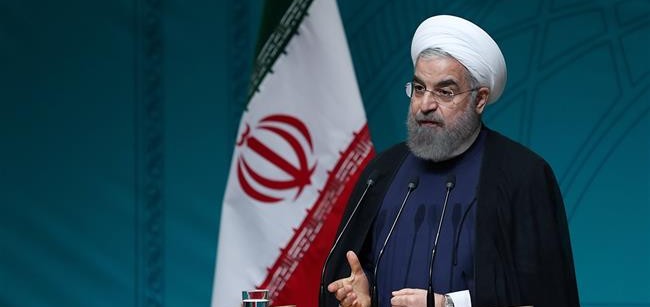LATEST
Iran’s President Rouhani is using his first Cabinet reshuffle to test Parliament, submitting three nominees who have previously been rejected by the Majlis.
Rouhani replaced the Culture, Education, and Youth Affairs Ministers last week. All three men had been targets of Parliamentary criticism, notably over the President’s declared intention of opening Iran’s political and cultural spheres. Both hardline critics and reformists who have supported Rouhani said the reshuffle was overdue.
However, the President has not backed down. Instead, he submitted the names of Reza Salehi Amiri (Culture), Masoud Soltani Far (Sports and Youth Affairs), and Fakhreddin Ahmadi Danesh Ashtiani (Education).
Salehi Amiri and Soltani Far was turned down by the Majlis in 2013 when each was put forward to lead Youth Affairs. Danesh Ashtiani was blocked in 2014 to head the Science, Research, and Technology Ministry.
Rouhani Gives Way to Supreme Leader
The President’s nominees appear to be an attempt to balance his position, amid growing pressure from the Supreme Leader and the Islamic Revolutionary Guards Corps.
The Guards have launched a new challenge to Rouhani’s policies to attract foreign investment, which could threaten the IRGC’s extensive holdings in sectors such as energy, transportation, and engineering. On October 17, Guards commander Mohammad Ali Jafari claimed “some officials” have “conflicting views” with the Supreme Leader because they are “looking outwards” for “solutions to the country’s problems”.
Rouhani tried to respond last Thursday with the declaration, “We must be hospitable to traders, merchants, and investors who want to enter the country.”
However, the Supreme Leader had already stepped in with another attack on the US, and Friday Prayer leaders followed with a direct criticism of Rouhani’s foreign policy of “constructive engagement”.
The President gave up ground on Sunday and Monday, during a tour of central Iran. He echoed Ayatollah Khamenei’s denunciation of a “lack of spirituality” in the US Presidential election: “America claims it has more than 200 years of democracy, and they have had 50 presidential elections, but there is no morality in that country.”
Then he joined the regime’s condemnation of countries, such as Turkey and the US, assisting the Iraqi-Kurdish attempt to recapture Iraq’s second city Mosul from the Islamic State:
We regard as very dangerous intervention by foreign countries without any coordination with the host country and believe that the Syrian and Iraqi governments must request help and demand that another country act against terrorism inside their territories.
Iranian-American Shahini Given 18-Year Sentence
Tehran has handed down another lengthy prison sentence to a dual national.
Iranian-American Robin Shahini has been condemned to 18 years for collaborating with the US and “insulting sanctities”.
Shahini, a graduate student based in San Diego, was detained in July as he visited his mother in northern Iran.
In an interview broadcast late Monday, Shahini said that he “just laughed” after hearing his sentence.
He acknowledged supporting the protests that followed Iran’s disputed 2009 Presidential election, but said he was never involved in espionage: “Whatever information they had is all the pictures I posted in Facebook, in my web blog, and they use all those evidence to accuse me.”
Shahini said he was not sure if he would file an appeal, adding, “I do a hunger strike – until either they free me or I die.”
Iranian authorities have detained and sentenced a series of dual nationals. Since September, sentences of between five and 10 years have been given to Anglo-Iranian charity worker Nazanin Zaghari-Radcliffe; Iranian-American oil executive Siamak Namazi and his 80-year-old father, Baquer, a Canadian-Iranian who worked for UNESCO; Lebanese-Iranian activist Nazar Zaka; and Austrian-Iranian businessman Kamran Ghaderi.
Five Iranian-Americans, including Washington Post correspondent Jason Rezaian, were released in January at the time of the implementation of the July 2015 nuclear deal. Last month Canadian-Iranian academic Homa Hoodfar was freed, with Tehran announcing this week that it is seeking better relations with Ottawa.

